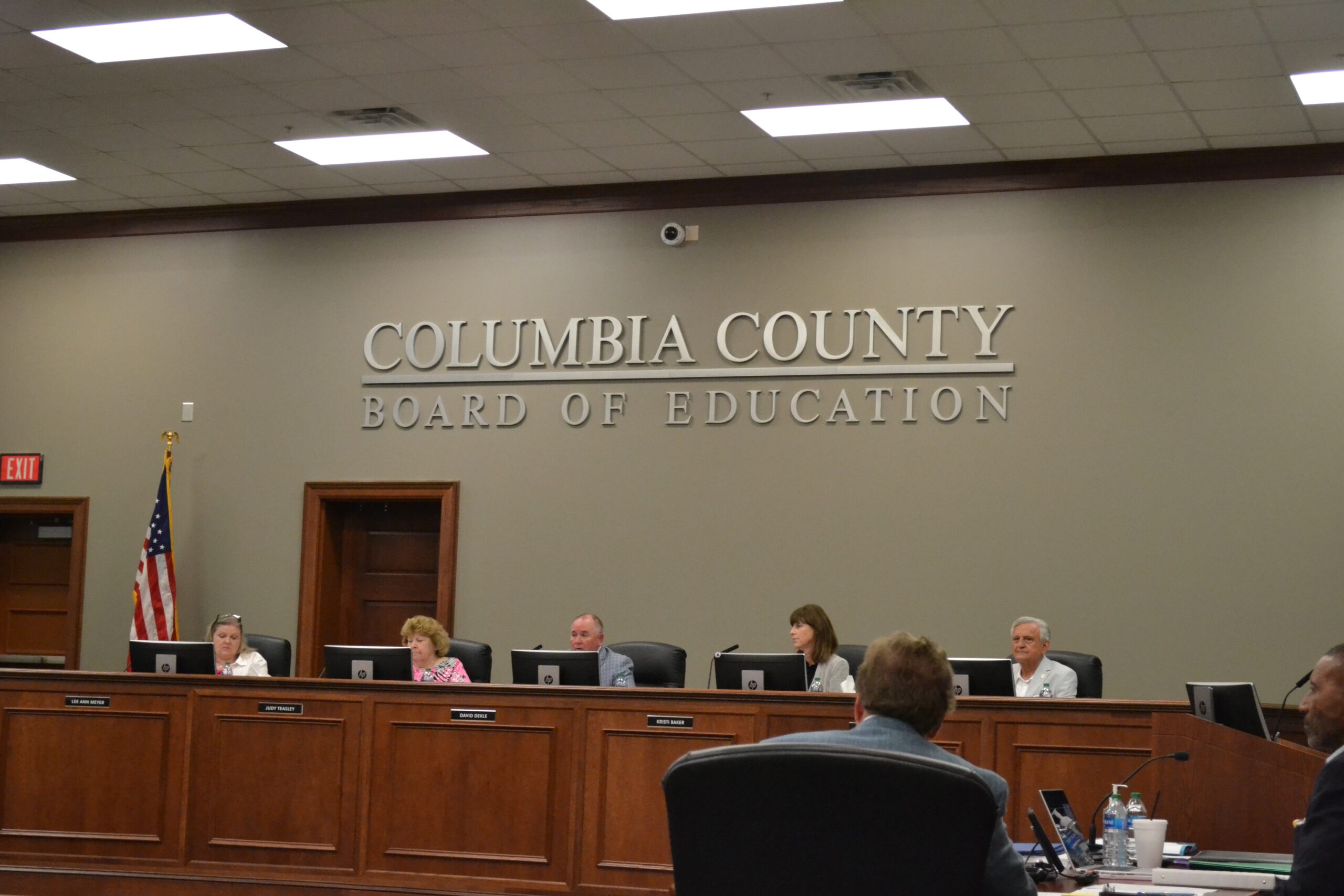After unanimously deciding to tentatively lower the 2024 millage rate to fund next school year’s budget, the Columbia County Board of Education held two public input meetings on Tuesday to hear community members’ opinion on the new taxation rate.
Tasked every summer with deciding the millage for the following academic year, members of the Board of Education chose to lower the millage rate for a fourth year in a row from 17.20 mills to 17.10 mills.
MORE: Grovetown can afford to roll back millage rate, says finance director
As the millage rate affects homeowners’ property taxes and thereby the school district’s budget, every mill equals approximately $1 per $1,000 of a home’s assessed value.
Lowering the millage rate once again – decreasing it to the lowest rate since 2012 – will result in the school district losing $800,000 in property tax revenue, despite growing concerns for higher expenses caused by inflation.
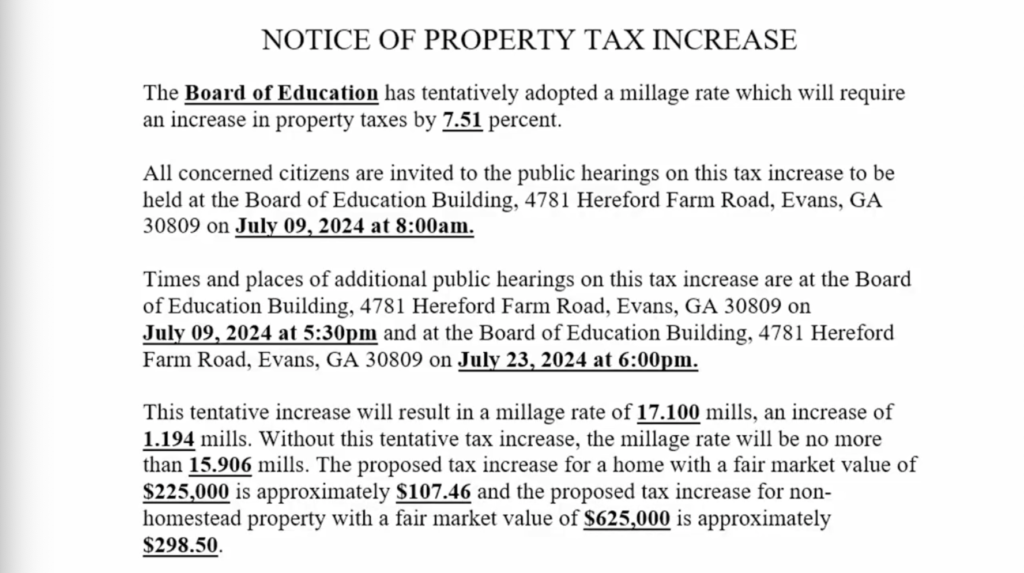
“Inflation is not our friend. It has cost us,” said board member David Alalof. “We can’t crystal ball what’s going to happen over the next five years, but we just hope it’s going to settle down.”
In addition to Columbia County experiencing a rise in property values, Superintendent Steven Flynt said an increase in exemptions for new and existing properties has exceeded growth in the county, an unusual occurrence according to Flynt.
These growing exemptions, combined with COVID-19 relief funding ending and required state employee benefits costs increasing, could pose some challenges for the future of the school district.
“I don’t think we could talk about the budget or the millage rate without talking about inflation – it has impacted all of us, as well as all of our employees,” he said. “One thing to note is that we’re having to pay extra for all the goods and services that we’re buying … the school district is in the same scenario as all of our personal budgets.”
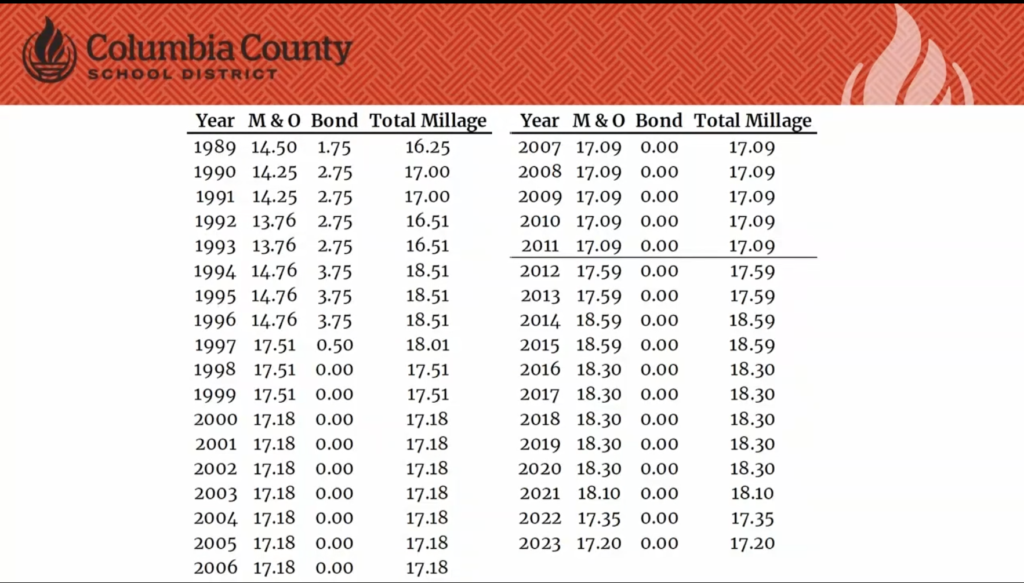
From a “historic inflation” rate and with the new Westmont Elementary School opening in August, Flynt said a 40% increase in costs on the school district’s longterm building plan has been one of the major setbacks in the district’s budgets.
“We have seen inflation impact our building program even more than any other area,” he said. “… we’re continuing to do that work although it has been done a little slower, and we don’t see that number coming back down.”
On top of inflation, Flynt said one of the biggest tax exemption groups that is continually increasing within the county is older adults aged 70 and above, who opt out of paying the millage rate.
“As we look at the digest, what we’re seeing is that age group is not moving out, but the number of people moving into the age range is increasing pretty rapidly,” he said. “… just over a short period of time, about four years, we’ve seen an increase of about $5 million in that one exemption.”
If the county were to lower the age of the school tax exemption to 65, Flynt said it could double the exemption – an annual reduction of $17 million in the district’s property tax revenue.
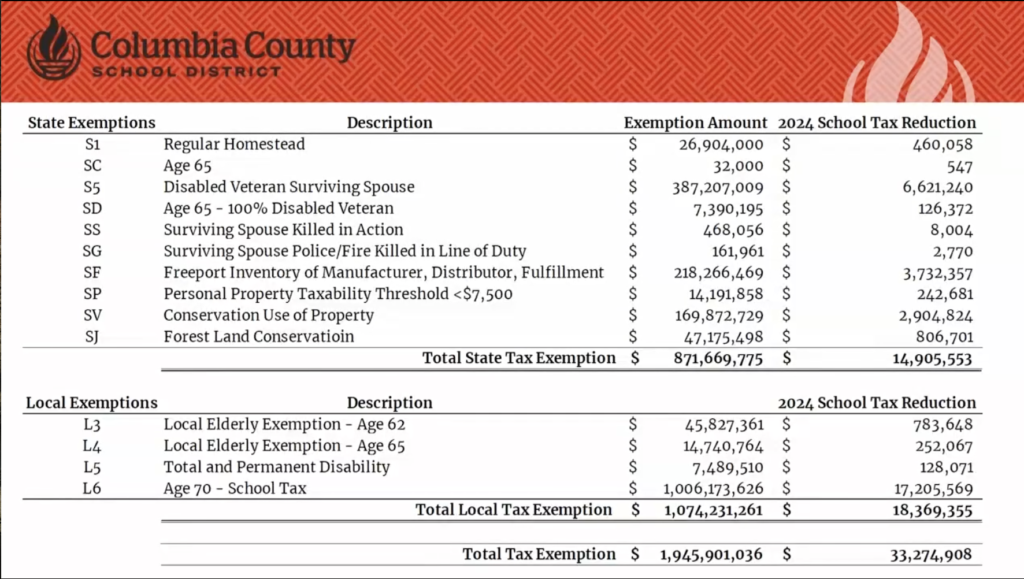
However, Flynt said he believes his staff’s conservative budget plans and selective spending will allow schools to continue thriving despite the likely monetary challenges ahead.
“I think our budget process in totality takes a look at that and helps us get through those challenging times. We do a five year outlook on a very detailed budget and then we try to do a 10-15 year long range budget,” he said. “… that’s why we’ve had a very conservative budget this year and we typically do that every year.”
Flynt also pointed out to attendees that, although the board members have voted to ensure a lowered millage rate, property owners still might see a tax increase of up to $500 due to the conclusion of a tax rebate from Gov. Brian Kemp.
“What goes unnoticed this time of year consistently is – if you look at the last 10 years – the board has not increased the millage rate. I mean for five years it remained the same and for the last three it has decreased,” said board member Judy Teasley. “So while your taxes have gone up, we’re not responsible for that.”
Participant Ayman Fadel, the sole community commenter, shared at an 8 a.m. public digest hearing that he would not mind a higher millage rate in order to successfully fund the county’s various programs for the betterment of students’ education.
Although he has no kids of his own in the school system, Fadel said he acknowledges that he and many others still benefit from the education system, especially since many students and employees stay within the county.
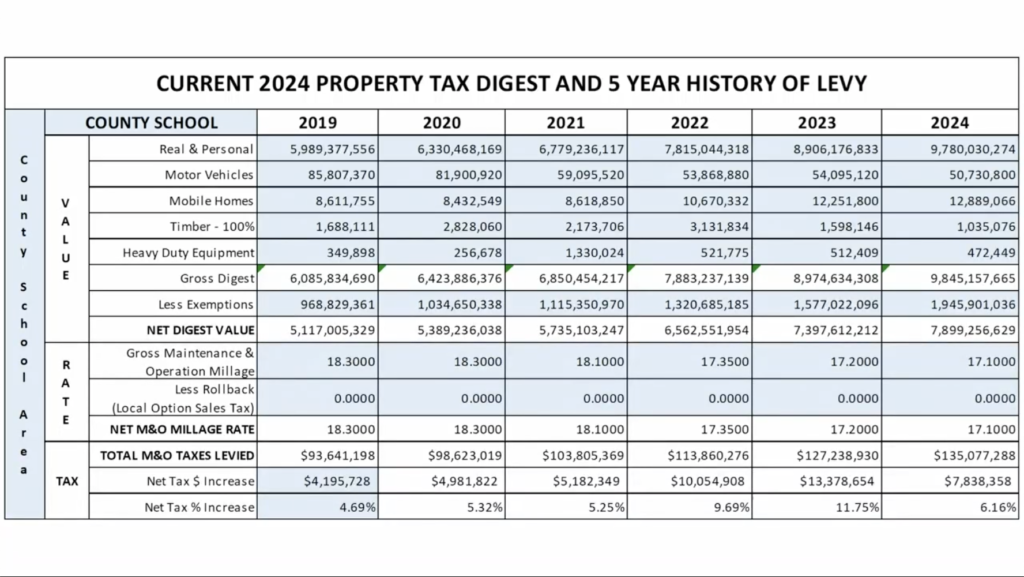
“I am not opposed to higher taxes for the purpose of educating children, and obviously I would like to point out that a lot of the expenses are going to be wages for teachers and wages for custodial workers.” he said. “Since these people live with us they are going to be spending their money here with us, so this money doesn’t leave our district – it stays with us and circulates – so I don’t think it’s an unwise or uneconomic expenditure.”
With federal pandemic relief funding decreasing school’s budgets, Fadel said he feels the public needs to acknowledge the school district’s need for a higher millage rate as he believes the state does not properly fund public schools.
“Our revenue for education comes in large part from the state of Georgia, and the state of Georgia for many years has not adequately funded education, according to the Constitution of Georgia which mandates a well funded public education system,” he said. “So, I think that some of the people that should be involved in discussions of millage rates should be our state legislatures, who are not putting forth the money for public education in the State of Georgia.”
Although the Board of Education has already guaranteed a lowered millage rate, board members can still further decrease the rate at the final approval after hearing community members’ comments.
“I think we have an extremely strong plan,” Flynt said. “We wish we could do more, but we are being very mindful of the taxpayer dollars and trying to be very good stewards of that while providing the best and highest level of education possible for each and every student.”
Board members will approve the final millage rate on Tuesday, July 23, during a regular monthly work session at 6 p.m. within the Board of Education building, located at 4781 Hereford Farm Road.
For more information of 2023-24’s millage rate, CLICK HERE.

